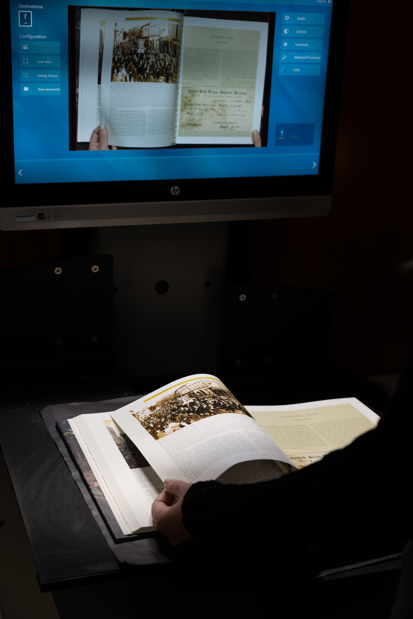Technology and Markets
Technology and Markets Strategy Group
This group works closely with the community and stakeholders to develop and articulate a shared understanding of the development of library infrastructure based on member needs. It will also analyse and identify barriers to the adoption of new technologies for libraries, for example in relation to artificial intelligence (AI) and helps articulate member needs to providers.
Over the next few years it will be looking at:
-
The transformative potential, and practical application, of AI solutions for libraries and library interaction with AI technologies in higher education.
-
Interrogating the market for library technology to foster competitiveness and value for money.
-
The scope for technology-enabled innovation across the sector, spreading innovative practice and supporting early adoption.
The group has developed a technology survey which will provide valuable intelligence on the use and perceptions of library technology amongst SCONUL members. Find out more here.
Group membership
- Anna O’Neill, University of Warwick (Co-chair)
- Katy Woolfenden, University of Manchester (Co-chair)
- Georgina Dimmock, University of Northampton
- Sue Egleton, University of Reading
- Birgit Fraser, Anglia Ruskin University
- Fiona Greig, University of Winchester
- Anna Grigson, University of Sheffield
- Mark Hughes, Cardiff Metropolitan University
- Lisa McLaren, SCONUL
- Gareth Owen, Cardiff University
- Ann Rossiter, SCONUL
- Jane Saunders, University of Leeds
- Amy Warner May, University of Oxford
- Monica Westin, Manchester Metropolitan University
- Wendy White, University of Southampton
- Monica Westin, Manchester Metropolitan University


Current Projects
AI for libraries: The team from the Technology and Markets Group which is leading our work on AI has been very active in exploring the opportunities and challenges that the new technologies present for the sector. The team held two webinars covering these issues and is planning a series of further webinars sharing emerging practice and information on developments in teaching and learning and research, for example AI and transformation of the content space; the world of work; the impact of AI on user behaviour; on repositories and AI and ethics.
The group has set up a new initiative to bring practitioners together to share information and experiences in a relaxed way through AI coffee mornings. At the first of these meetings members of the team will be sharing the outputs from a series of meetings held with library service providers over the first two months of this year to explore their roadmaps for the development of AI-enabled services.
Future of the Systems Librarian: This project is looking at the role of the systems librarian in supporting the evolving needs of the library and addressing challenges including difficulties in recruitment and succession planning. It is exploring the implications of AI and other developments; the nature and breadth of the skills required; and implications for role descriptions, grading and salaries for systems librarians. It is also looking at organisational models for deploying these skills within institutions, including the experience of peer professional services.
The project opened with a scoping webinar and consultation which explored these issues. The group is analysing the results and further outputs may include a survey of member experience and developing requirements in this area, case studies, job descriptions, salary and banding scoping and other good practice materials plus analysis of the sector’s current and future needs.
Metadata project: This project will explore a series of interrelated themes around the supply, use and sharing of metadata in libraries and the development of new services and collaborations in this area. This includes a more efficient bibliographic metadata supply model. The group is planning a joint event with RLUK’s metadata group in June. This conference will explore the meaningful actions we can take as a community to affect change in key focus areas or to influence change with partners and providers to meet the long-term requirements of the sector.
Technology-enhanced library spaces: This project is showcasing technology-enabled libraries including exploring pedagogical drivers for their design; underpinning business cases; the development process; delivery and evaluation. The project held a launch webinar with three case studies and a second webinar is planned with a focus on the library and digital humanities. The project will also produce a series of approximately a dozen case studies to highlight innovation across the community in this area.